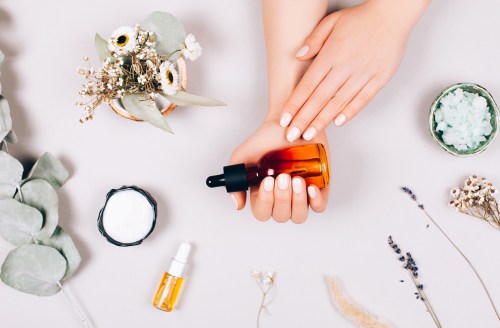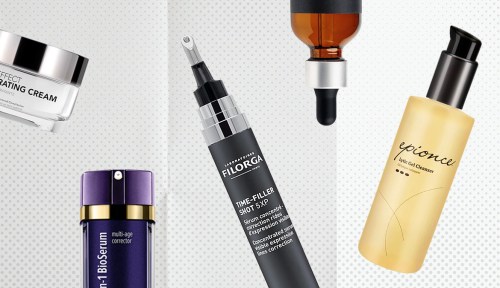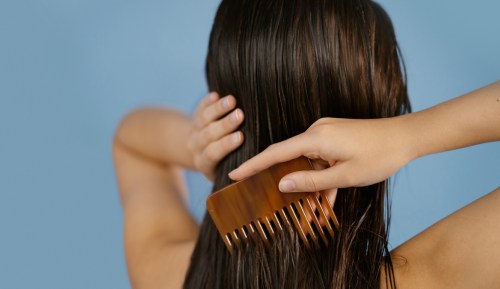Our editors independently select these products. Making a purchase through our links may earn Well+Good a commission
Moments after touting the miraculous impact of tea tree oil on my social media page for a particularly nasty canker sore, my phone lit up with a notification. It was a good friend of mine, one who always takes pride in being up-to-date on everything healthy living. “I hate to tell you this,” the message read, “but there’s some evidence that tea tree and lavender oil could be really bad for you.”
Experts in This Article
Lea Jacobson is a certified clinical aromatherapist who focuses on transparency and safety around essential oils.
Naturally, I was surprised—tea tree and lavender oil aren’t just amazing, they’re the powerhouses of essential oils. Nearly everyone I know, even if they’re not particularly “into” oils, uses tea tree and lavender for all sorts of home remedies. If they’re not totally sold on the health benefits, they’ll certainly make an exception for one of the oodles of commercial products that uses these oils as an ingredient. They have soothing, antiseptic, and antibacterial properties—so how could something so good be linked to something so scary?
A study released in the Journal of Clinical Endocrinology and Metabolism indicates that consistent, long term exposure to lavender and tea tree essential oils was linked to the development of prepubertal gynecomastia (in simpler terms, the early development of breast tissue in young boys and girls). The working theory is that these oils in particular contain chemicals that the body interprets as estrogen, throwing off the balance of the endocrine system and presenting potential dangers to both males and females.
A Google search, unsurprisingly, will lead you down a rabbit hole—the same compounds occur in more than 65 other essential oils, which has led some experts to question regular use of essential oils altogether. Before you throw out all of your oils, however, it’s important to take note of a few points—namely, the small sample size and “inconclusive” nature of the available research.
“If people used essential oils with intent and not willy-nilly in their bath and body products used multiple times a day at dilutions possibly at unsafe levels, then they should not experience adverse reactions,” says Lea Jacobson, certified flinical aromatherapist. “This is a complex issue, not replicated, [and] further investigation is necessary.”
When presenting new research, scientists frequently remind their readers that correlational doesn’t necessarily equal causational—in other words, that a positive trend in two factors may not be related. Jacobson stresses that she does not believe that the oils are to blame, saying that they get a “bad rap” because they’re so commonly used. She argues the real culprit may not be the oils at all, but the phthalates in the Petri dishes used in the labs. Phthalates area known hormone disruptor, and it is possible for the essential oils being tested to extract them from the plastic dishes.
That being said, sometimes even knowing that there’s a risk, no matter how small, can be enough to turn you off of lavender and tea tree. And some people, especially those who are cancer survivors, very young, or otherwise sensitive should be careful about any potential hormone disruptor. If the melaleuca smells greener on the safer side, here are five essential oils to try that have similar benefits:
Roman Chamomile
This oil has the light, fresh scent of a citrus with flowery undertones. If you love lavender and tea tree for their all-purpose, well-rounded uses, then you’ll love Roman chamomile. With antifungal, antihistamine, antibacterial, and somnolent properties, it’s a versatile alternative.
Shop now: Gya Labs Roman Essential Oil, $17
Frankincense
Looking for an addition to your holistic first aid kit? Frankincense works wonders inside and out. It’s said to stimulate healing and promote liver health. It also improves focus and is said to be an effective mood-lifter.
Shop now: Vitruvi Frankincense Essential Oil, $18
Cedarwood
If you love the natural, woodsy smell of tea tree and lavender, cedar will be your new obsession. The earthy notes of cedar oil inspire deep breathing, which may be why it’s so great for anxiety and emotional balance. Much like lavender, it’s also an effective bug repellent.
Shop now: UpNature Cedarwood Essential Oil, $16
Patchouli
Looking for an oil that can do it all? Patchouli is antifungal, soothing, repels bugs, and lifts moods. In addition to treating a variety of skin issues, it even works as a deodorant. Patchouli’s versatility makes me think those in the ’70s might have been on to something.
Shop now: Aveda Patchouli Essential Oil, $15
Geranium
Calming and light, geranium oil is a wonderful alternative if you’re looking for an oil with lavender’s soothing effects. Jacobson points out that geranium also has anti-fungal properties similar to tea tree, and that when inhaled, it can make people “feel emotionally balanced without affecting physical hormones.”
Shop now: Vitruvi Geranium Essential Oil, $18
Oh hi! You look like someone who loves free workouts, discounts for cult-fave wellness brands, and exclusive Well+Good content. Sign up for Well+, our online community of wellness insiders, and unlock your rewards instantly.
Sign up for the Well+Good SHOP Newsletter
Get exclusive deals on wellness, beauty, fitness, and food products that have been hand-picked by our editors.
Got it, you've been added to our email list.











